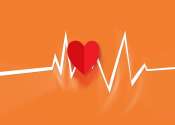Researchers identify diabetes drug metformin as potential atrial fibrillation treatment in collaborative research
Cleveland Clinic researchers have identified a common diabetes medication, metformin, as a possible treatment for atrial fibrillation.
Oct 11, 2022
0
808









